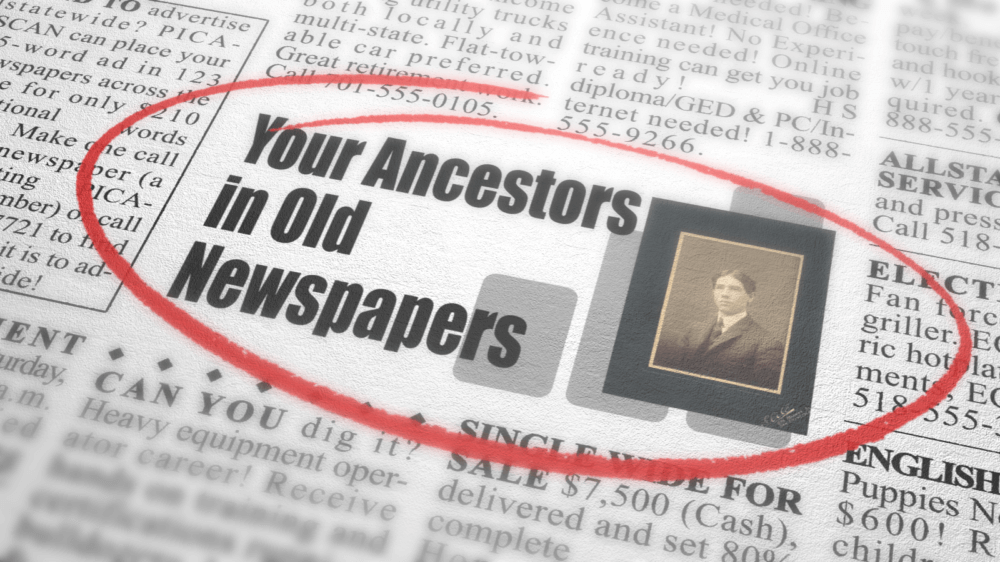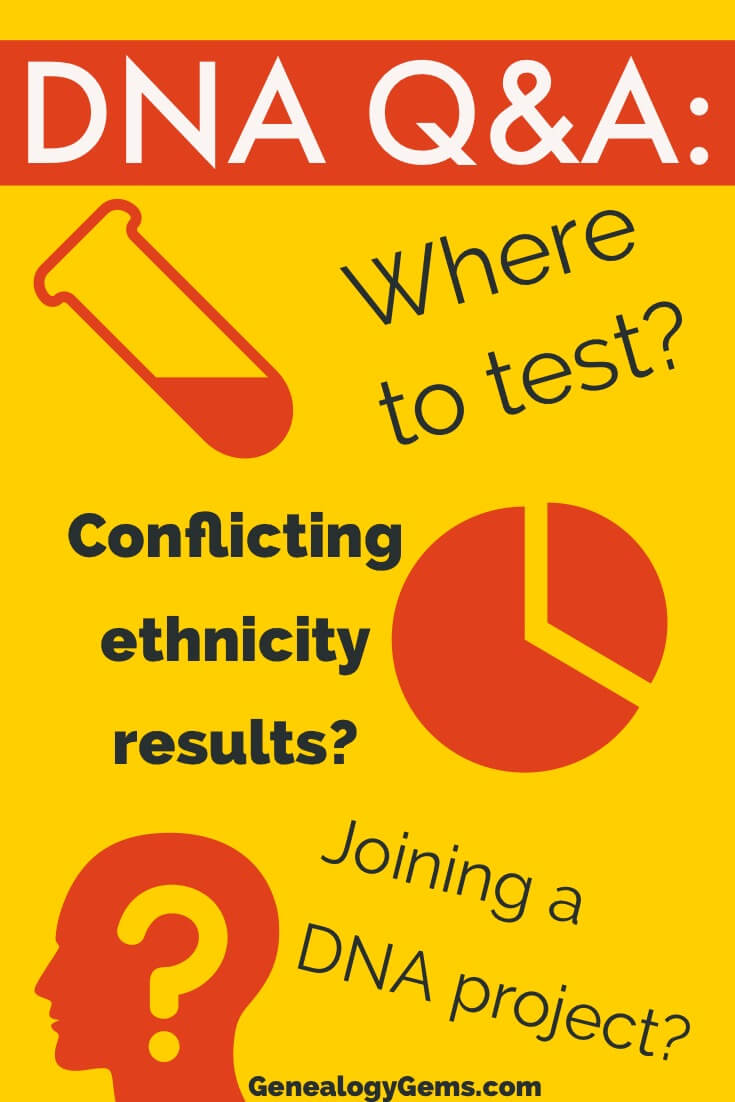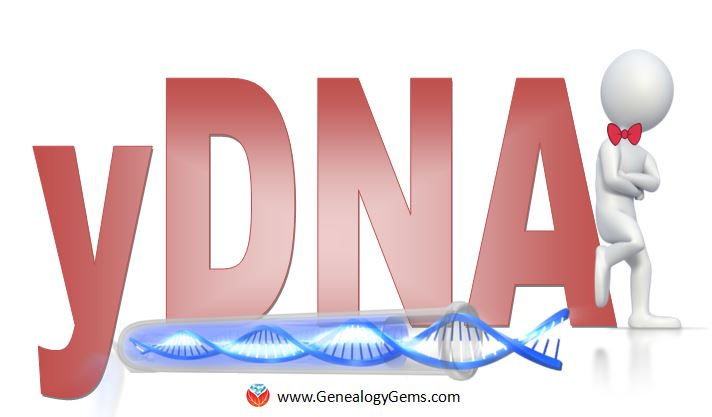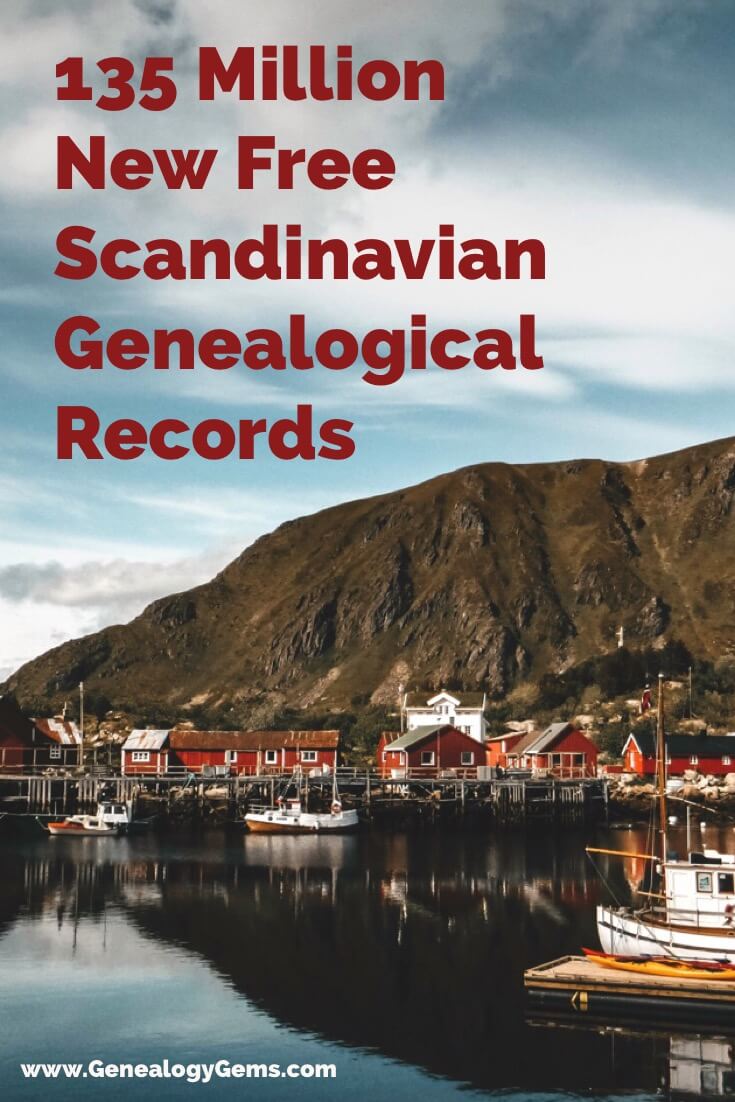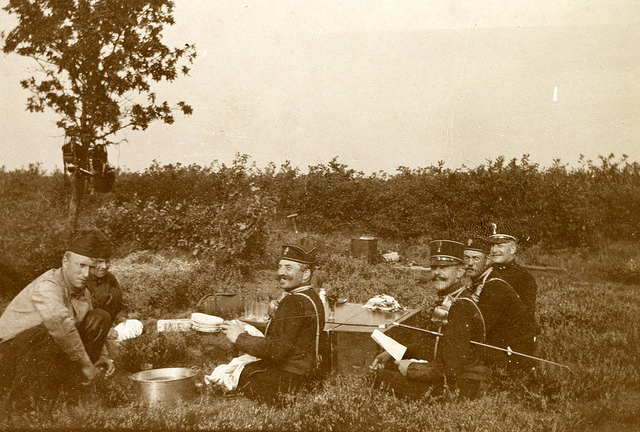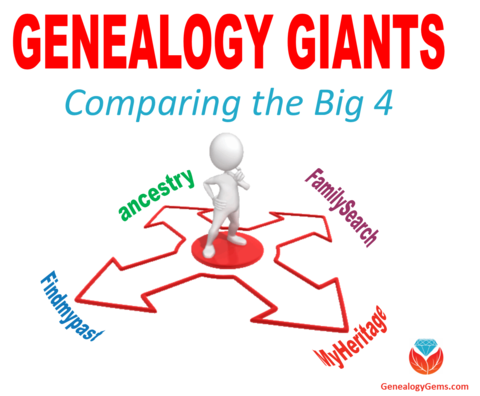Blog

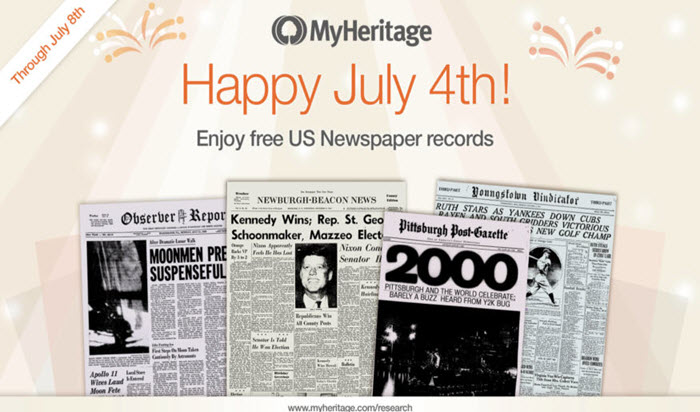
Free US Historical Newspapers on MyHeritage for July 4 Week
Through July 8, search free US historical newspapers on MyHeritage.com! Newspapers help you tell compelling family history stories. Collections for several individual states are available–and so is a SuperSearched-version of the nationwide historical newspaper site, Chronicling America.
The following announcement comes from MyHeritage.com:
More free US historical newspapers on MyHeritage
This week it’s also free to use the MyHeritage SuperSearch engine to explore digitized historical newspapers at Chronicling America, the Library of Congress’ free historical newspaper website. MyHeritage’s SuperSearch engine is proven powerful to help find the most–and the most accurate–search results among millions of records on its site. See what SuperSearch finds for you on Chronicling America or in any of these free U.S. newspaper collections this week.

About the Author: Sunny Morton
Sunny is a Contributing Editor at Lisa Louise Cooke’s Genealogy Gems; her voice is often heard on the Genealogy Gems Podcast and Premium Podcasts. She’s known for her expertise on the world’s biggest family history websites (she’s the author of Genealogy Giants: Comparing the 4 Major Websites); writing personal and family histories (she also wrote Story of My Life: A Workbook for Preserving Your Legacy); and sharing her favorite reads for the Genealogy Gems Book Club.
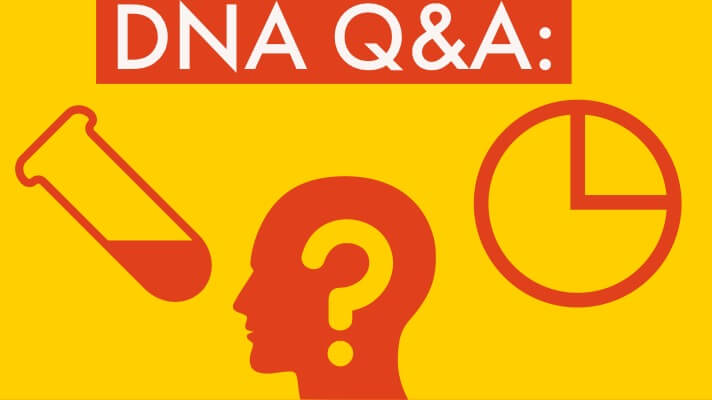
YDNA Test Q&A for Genealogy
Here’s a YDNA test Q&A with questions from a Genealogy Gems Podcast listener. Your DNA Guide Diahan Southard has answers: where to test, on joining a family DNA project, and those conflicting DNA ethnicity percentages.
Recently Lisa Louise Cooke received a voicemail from Genealogy Gems Podcast listener Ken. He’s been doing genealogy for more than five years and he’s listening to the entire podcast series (he’s up to episode 180 already!). He says, “I’ve made amazing discoveries and listening to you give all of these tips is fantastic! I listen to you on the way to work; I listen on the way home.” (Love it!) Then he asked some DNA questions that Lisa forwarded to me:
“My last name is Maloney. There’s so many of them, it’s crazy. My dad told me that my grandfather got into a fight with his brothers over a piece of land, so they never talked after that. Well, I found out that I have a second cousin with my exact same name who lives three miles from me. I’ve lived here my whole life and I never knew him. I saw him in the phone book, but I never dreamed that he had anything to do with me. I finally met him about two months ago.
Anyway, I want to take the YDNA test and the only one I know about doing it with is Family Tree DNA. Is that a good company to deal with? And, one more real quick thing: AncestryDNA says I’m 69% Great Britain. These other places say I’m like 30-some percent Scandinavian. So who’s right?”
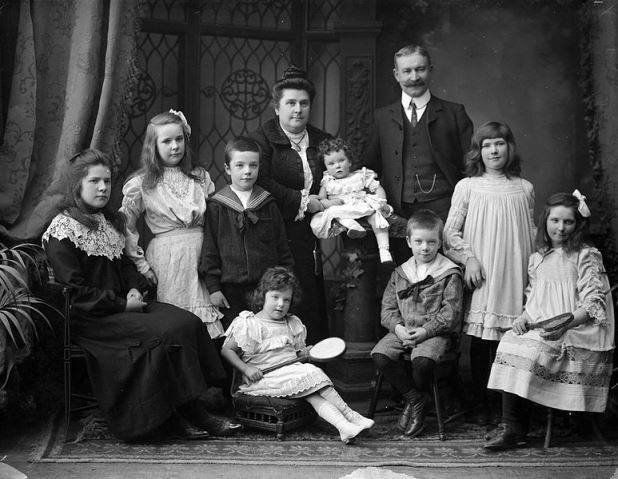
Maloney is a common surname in the United States. In the 2000 census, it ranked #1049 in popularity (click here to see how we know that). There are also a lot of Maloneys in Ireland. This 1906 photo of the Maloney family of Newtown, Waterford, Ireland is at the National Library of Ireland (we found this digitized image at Wikipedia).
On taking YDNA tests
Thanks so much for your question, Ken. I wish everyone had your enthusiasm about YDNA testing! You are absolutely right in thinking that the YDNA test can help you answer questions about your direct paternal line. Because of the way YDNA is inherited, other Maloneys who share your YDNA also share a common ancestor with you.
Yes, the best place to start with YDNA testing is to first test at least 37 markers at Family Tree DNA. 67 is more ideal, but you can always test more later.
Take your YDNA test results a step further
The next thing to do is to join a family project. You can search for family projects right from the homepage at www.ftdna.com. Just put in any surname of interest, and you can see how many people with that surname have been tested, and if there are any family projects associated with that surname. Clicking on the name of a project will take you to that project page where you can join the project and contact the project coordinator with your questions. (Learn more about family or surname projects below.)
Now, while it is of great benefit to see others matching your YDNA and sharing an ancestor with you, an often overlooked benefit of the family project is your ability to see all of the people who are sharing your surname, but do NOT share a direct paternal line with you. This list can be a goldmine, as it can save you hours of wasted research barking up the wrong tree. Any ancestor represented in the surname project who does not share YDNA with you is not your ancestor! It doesn’t matter if their name is spelled just like yours, or that they named all of their eldest sons Solomon, or that they lived in the same county as your family. THEY ARE NOT YOUR FAMILY. So you can move on, and find other, more valuable leads.
DNA ethnicity: Conflicting results
As for your questions about ethnicity, you may want to check out a couple of blog posts here at genealogy gems to point you in the right direction:
- DNA Ethnicity: How it’s getting more specific (an update on recent changes to ethnicity reports)
- Where did I come from: Understanding DNA ethnicity estimates (an overview of what ethnicity estimates mean)
- DNA Ethnicity: Percentages may vary (on why siblings with the same parents get different ethnicity results)
Keep up the good genetic genealogy testing, Ken! It is bound to help you and your Maloneys.
More on YDNA tests in Premium eLearning
If you’re a Genealogy Gems Premium eLearning member, you have access to a quick-and-easy video tutorial series on YDNA testing from Diahan Southard (Premium eLearning now has more than 20 DNA video tutorials). You also have access to the recent Genealogy Gems Premium Podcast Episode 160, in which Diahan compares her current ethnicity percentages at major testing sites and gives tips for better understanding them. Click here if you’d like to learn more about Premium eLearning.
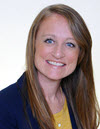
About the Author: Diahan Southard has worked with the Sorenson Molecular Genealogy Foundation, and has been in the genetic genealogy industry since it has been an industry. She holds a degree in Microbiology and her creative side helps her break the science up into delicious bite-sized pieces for you. She’s the author of a full series of DNA guides for genealogists.
Disclosure: This article contains affiliate links and Genealogy Gems will be compensated if you make a purchase after clicking on these links (at no additional cost to you). Thank you for supporting Genealogy Gems!
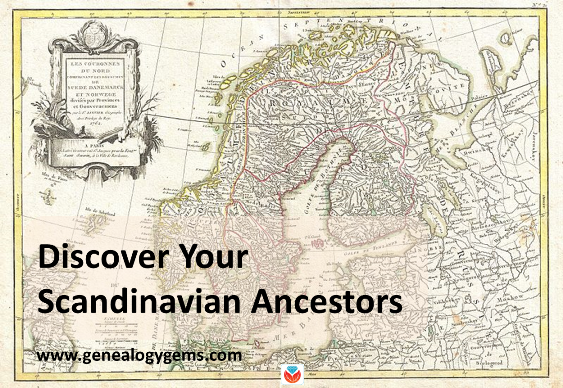
Scandinavian Genealogy Records and More
It’s a Scandinavian genealogy dream come true: over 135 million new free records at FamilySearch! Also new (and free): church records for England, France, Germany; Italian and Mexican civil registration; archival indexes for The Netherlands; South African court records; Kentucky death records; Michigan births and Utah delayed birth records.
Featured: Free Scandinavian genealogy records
The free Genealogy Giant FamilySearch recently announced the addition of 135.4 million free digital historical records from Denmark, Finland, and Sweden. “These new collections were digitized in partnership with MyHeritage and the National Archives of Denmark and Finland and can now be accessed at FamilySearch.”
Denmark: over 55 million new records added. These include census records (1834-1930); browse-only church record images (1686–1941); browse-only land record images of deeds and mortgages; browse-only estate record images (1436–1964) and estate record indexes (1674–1851); civil marriages (1851–1961) and another collection of Copenhagen civil marriages (1739–1964; indexed 1877–1964). Search all Denmark records at FamilySearch for free.
Finland: over 34 million new records added. These include nearly 300 years of church census and preconfirmation books (1657–1915) and 100 years of tax lists of Suomi-Henkikirjara (1819–1915). Search all Finland records at FamilySearch for free.
Sweden: nearly 47 million new records added. These include Sweden household examination books (1880–1920) and church books (Kyrkoböcker) from Kopparberg (1604–1860), Örebro (until 1860), and Östergötland (1555–1911). Search all Sweden records at FamilySearch for free.
More free records at FamilySearch
England. There are more than 2.5 million indexed records in a new collection, England, Leicestershire Parish Registers, 1533-1991. According to the description. “The records found in this collection span over 400 years and include: Banns, 1637-1931; Baptisms, 1533-1916; Burials, 1533-1991; and Marriages, 1533-1931. While the vast majority of the records include images of the original parish registers, there are transcripts that do not include images. The images captured by FamilySearch were provided by the Record Office for Leicestershire, Leicester & Rutland. The indexes were provided by Findmypast.”
France. Nearly 30,000 records have been added to the collection, France, Haute-Garonne, Toulouse, Church Records, 1539-1793. “Church records (registres paroissiaux) of baptisms, marriages, and burials within the custody of the Municipal Archives of Toulouse (Archives municipales de Toulouse). Includes marriage banns (bans de mariages). Most records are for Catholics, although there are a small quantity of available records for Protestants. Availability of records is largely dependent on time period and locality.”
Germany. More than 1.3 million indexed records have been added to Germany, Bavaria, Diocese of Augsburg, Catholic Church Records, 1615-1939. These include baptisms, marriages and burials. Another 43,000+ indexed records have been added to Germany, Rhineland, Diocese of Trier, Catholic Church Records, 1704-1957, as well.
Italy. FamilySearch continues to add to its Italian civil records collections. More than 20,000 records each have been added to the free collections, Italy, Brescia, Civil Registration (State Archive), 1797-1943 and Italy, Pescara, Civil Registration (State Archive), 1809-1929.
Mexico. There a new browse-only collection with more than 1.4 million images! It’s Mexico, Sinaloa, Civil Registration, 1861-1929. The records include “births, marriages, deaths, indexes and other records created by civil registration offices” in Sinaloa.
Netherlands. More than 5.4 million indexed records have been added to the collection, Netherlands, Archival Indexes, Public Records. “Archives around the Netherlands have contributed indexes which cover many record sources, such as civil registration, church records, emigration lists, military registers, and land and tax records. This collection will cover events like notarial records, emigration and immigration, military enrollment and more. These indexes were originally collected, combined and published by OpenArchives.”
South Africa. More than a million indexed records have been added to South Africa, Cape Province, Probate Records of the Master of the High Court. These come from the original records kept at the Cape Archives Depot in Cape Town, South Africa.
United States. Two new collections have been added and one has received significant updates:
- Kentucky Death Records, 1911-1965 has added more than 26,000 records;
- Michigan, County Births, 1867-1917 is a brand new collection with upwards of 100,000 record images, from which over 135,000 names have been indexed to date;
- Utah, Delayed Birth Certificates, 1900-1960 is another new collection with about 27,000 indexed records. (Delayed birth certificates are generally filed when someone needs proof of birth but no birth record exists or can be found.)
Genealogy Giants partnerships benefit everyone
The Genealogy Giants—Ancestry.com, FamilySearch, Findmypast and MyHeritage–-participate in partnerships now and then that lead to more online records for us. In this report, you see collaboration between the free site FamilySearch and subscription sites Findmypast and MyHeritage. We {heart} these win-win situations! Learn how these sites compare (and cooperate and compete) on our dedicated Genealogy Giants webpage.

About the Author: Sunny Morton
Sunny is a Contributing Editor at Lisa Louise Cooke’s Genealogy Gems; her voice is often heard on the Genealogy Gems Podcast and Premium Podcasts. She’s known for her expertise on the world’s biggest family history websites (she’s the author of Genealogy Giants: Comparing the 4 Major Websites); writing personal and family histories (she also wrote Story of My Life: A Workbook for Preserving Your Legacy); and sharing her favorite reads for the Genealogy Gems Book Club.
Disclosure: This article contains affiliate links and Genealogy Gems will be compensated if you make a purchase after clicking on these links (at no additional cost to you). Thank you for supporting Genealogy Gems!


